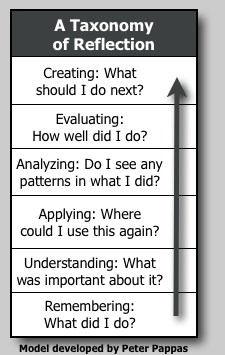One) Successful men realize that the most important decision in their life is the woman they choose, because outside of work, this is what they'll be spending most time on. The woman must understand the man's grand ambition, and support them with it. (Cf. Flow & The Intellectual Life as well). Women should be chosen on personality, not looks. Looks fade (attraction as well), personality "stays".
Two) Everyone deserves an opinion but not everyone deserves a say. Charlie Munger sums this up right: "I don't ever allow myself to have [express] an opinion about anything that I don't know the opponent side's argument better than they do." Or Marcus Aurelius, who says: "The opinion of ten thousand men is of no value if none of them know anything about the subject."
In short: Only state your opinion when you can back it up!; knowledge and experience.
The same goes for judging opinion (and advice) from others.
Three) Successful people buy assets when the money is enough. Assets > Luxury. (See also: Rich Dad, Poor Dad, Robert Kiyosaki). Only buy glamor and other "interests" once your assets are there to secure your financial success.
Four) Be pragmatic. Do what's practical, not what is "sexy". Notice inefficiencies and solve them. The entrepreneurial mindset.
Five) The morning sets the tone for the rest of the days. Time is subjective, waking up early doesn't matter as much as waking up later. It depends on the person. Someone who wakes up at 10am can be as successful as someone who wakes up at 6am. Instead, what defines success, is a highly effective morning routine.
Six) The less you talk, the more you listen. Talking less means less mistakes. In addition, the less you talk, the more people will listen when you do speak. It puts extra weight on your message. Listening means analysis and learning.
Seven) Pick the right opportunity at the right time. Pick the right vehicle. Do the right things in the right order! The advice "don't do what someone says, do what they do" is bullshit, as you can't do what someone is able to do after ten years of experience.
Eight) Discipline > Motivation. Motivation, like Dr. Sung says, fluctuates and is multifactorial dependent... When you are lead by motivation you will not be as productive. Don't rely on chance. Rely on what is stable.
Nine) Once a good career has been made, buy A1 assets and hold on to them to secure a financially successful future.
Ten) Just because you won, you are not a winner. Being a winner is a continuous process, it means always learning and reflecting as well as introspecting. Don't overvalue individual wins but do celebrate them when appropriate.
Eleven) Build good relationships with the banks early on. At times you need loans to fund certain ventures, when having a good relation with them, this will be significantly easier. Understand finance as early as possible. Read finance books.
Twelve) Keep the circle small. Acquintances can be many, but real close relationships should be kept small. Choose your friends wisely. "You become the average of the five people you spend most time with."
Privacy is important. Only tell the most deep secrets to the Inner Circle, to avoid overcomplication.
Thirteen) Assume that everything is your fault. Responsibility. It leads to learning. It requires reflection and introspection.
It leads to Dr. Benjamin Hardy's statement: "Nothing happens to you, everything happens for you."
Fourteen) Work like new money, but act like your old money. Combine the hunger of the new with the wisdom of the old.
Fifteen) Assume that you can't change the world, but slightly influence it. It prevents disappointments and gives a right mindset. Do everything (that has your ambition) with an insane drive. Aim to hit the stars. To become the best of the best.
Sixteen) Private victories lead to public victories. The solid maxim is the following: "The bigger the public victory, the more private victories went into it."
Work in private. Social media doesn't need to known the struggle. Let your results talk for you. This is also why you should never compare yourself to others, but rather to your own past self.
Seventeen) After extreme experience, the most complicated task will look elegant and effortless. Unconscious competence.
